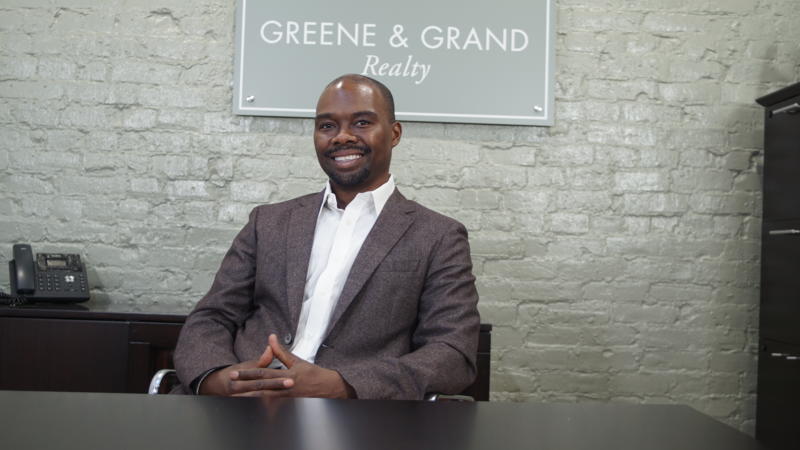Augustine Diji is no stranger to real estate. He grew up the son of a proud psychiatrist who practiced in Buffalo, New York. Early on, his father planted the seeds of ownership and strategic action. The memory cemented his understanding of property acquisition as a tool for wealth building that would change his own life trajectory.
While Diji became an adult and went on to practice law, his understanding of real estate and related issues enabled him to easily acquire several properties to build wealth. However, the economic downturn of the late 2000s found him in danger of losing his very foundation.
Over a two-year period, Diji fought desperately to retain all that he had worked so hard to acquire. The battle to maintain his property represented a personal and professional tug of war in other areas of his life. Diji emerged, but not unscathed. Grateful for having overcome his situation, he turned his experience into opportunities to give back.
He began coaching friends and colleagues in similar situations about how to negotiate with banks and hire lawyers to retain what they owned — in essence, how not to give up. Taking his own advice and resurrecting the entrepreneurial spirit that his father inspired drove him to leave law behind and to pursue real estate. Along with a business partner Gordon Sokich, Diji founded Luxor Homes and Investment Realty, LLC, primarily serving customers seeking property in Manhattan.
“In essence, I had to lose to win,” Diji said.
As Diji began to seal major deals for Luxor Homes, he realized that there was an entire audience in Brooklyn that was ready to be tapped. Striking out on his own, he founded Greene and Grande Realty in 2017, in the heart of Brooklyn’s Clinton Hill area.
With two real estate businesses under his wing, he was riding high. Yet, something was missing. Recalling how he had helped save many from foreclosure and bankruptcy, he realized that overcoming the possibility of financial ruin was not merely what had saved him. Becoming centered for the first time — grounded in health, in life, in spirit, in wellness — had made the critical difference. That revelation was something he wanted to share with others.

Inspired by his new perspective, Diji, along with his wife, Ngone Mbaye, embarked on a trip to India in Summer 2017, where they obtained their yoga certifications.
While immersing themselves in rigorous wellness training that could lead to richer, healthier lives, they were dismayed by the complete absence of minority trainees. The realization sparked an idea: the cost of certification could be prohibitive for people who looked like them, just as overcoming foreclosure had been for those who had needed his help. Losing at home ownership was one thing, but at life? The thought was unfathomable.
“People of color are at the top of the list when it comes to having heart disease, diabetes, and hypertension. But we are also at the very top of the list when it comes to dying from these diseases,” Diji said.
While he and his wife were on a pilgrimage to improve their health and wellness, a recurring thought emerged. If they could not bring people who looked like them to indulge in the same, there was one thing they could bring them — and that was access.
After their return to the U.S., Diji and Mbaye reclaimed one of his original Brooklyn properties, where they established their Greene Moments Studio to promote yoga and wellness.
“We chose yoga because it’s accessible to people of color,” Diji said. “Here, people have a safe place to stabilize the body, to control stress, and lower blood pressure through meditation, breathing, physical activity, and chi gung. All they need is a mat.”
Diji hopes the family yoga practice will allow people to see the vulnerability in themselves that he saw in himself years ago, when he needed help, and something more.
“People confront traumas. Maybe they are suffering, but what is giving them that inspiration and motivation to handle the pain?” Diji asked.
His question is particularly relevant in many minority communities that shun therapy for fear of stigmatization. Diji advocates an inside-out approach to healing.
“When you get a bit more balance in the mind, the spirit changes. Then you can take better care of the vessel—the body—that gives you life,” Diji said.
While the momentum associated with energy and balance is grounded in African roots, health and wellness are not necessarily a part of African culture.
“That becomes a danger for people of color. We need to take control of our health,” he said.
Reflecting on what lies ahead for the future of his real estate and yoga practices, Diji noted that both are near to his heart.
“Chi gung and yoga haven’t changed my love for real estate, but they have changed my approach to life and my love of real estate,” Diji said.
Given this new approach, Diji and Mbaye plan to continue reaching others in hopes of promoting more positive lifestyles. At Greene Moments, they have hosted trainings, sound therapy, meditation, healing ceremonies for women, and 108 Sun Salutation seminars. Since 2017, they have shared their teachings in Costa Rica as well.
In 2020, Diji and Mbaye facilitated their first Greene Moments retreat in Senegal, providing daily sessions in breathing, sound bath, yoga, meditation, health and wellness. Ghana is next on their list of places and people with whom they will share their message of health and wellness.
In association with their African roots, Diji and Mbaye will continue to share meaningful lessons in the spirit of community. Just like planted seeds that yield abundant fruit across the vast, rich depths of Africa’s green landscape, so, too, will they cultivate and reap a lush oasis of all things Greene.

